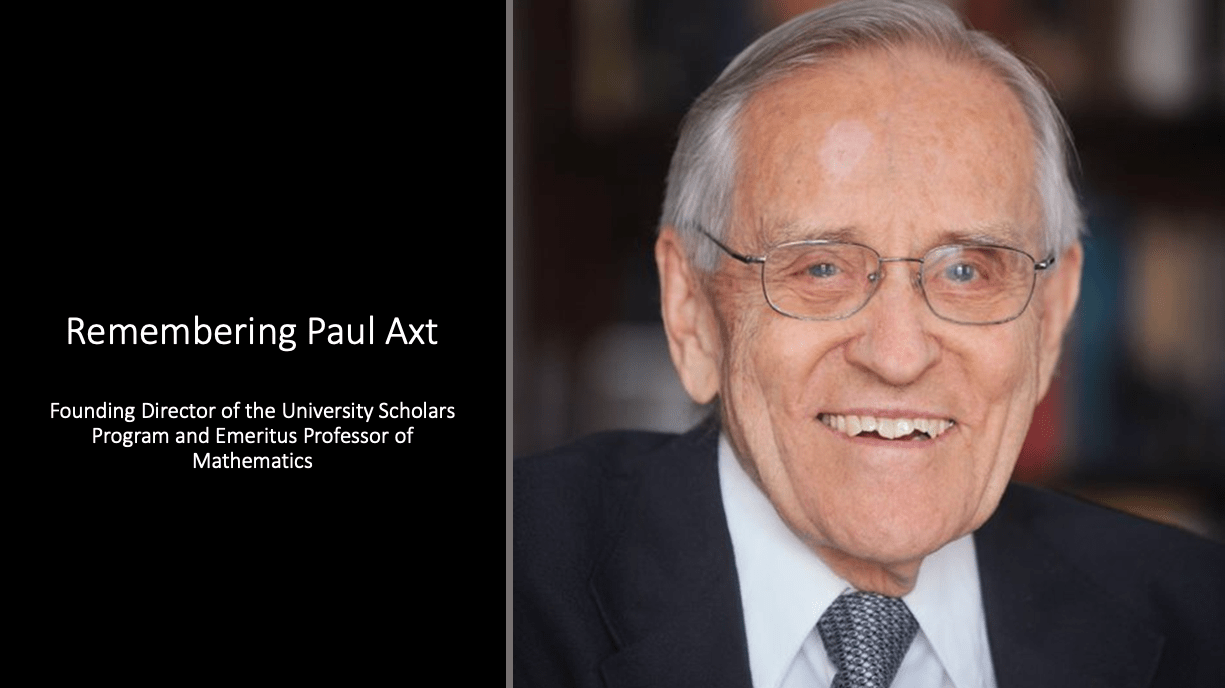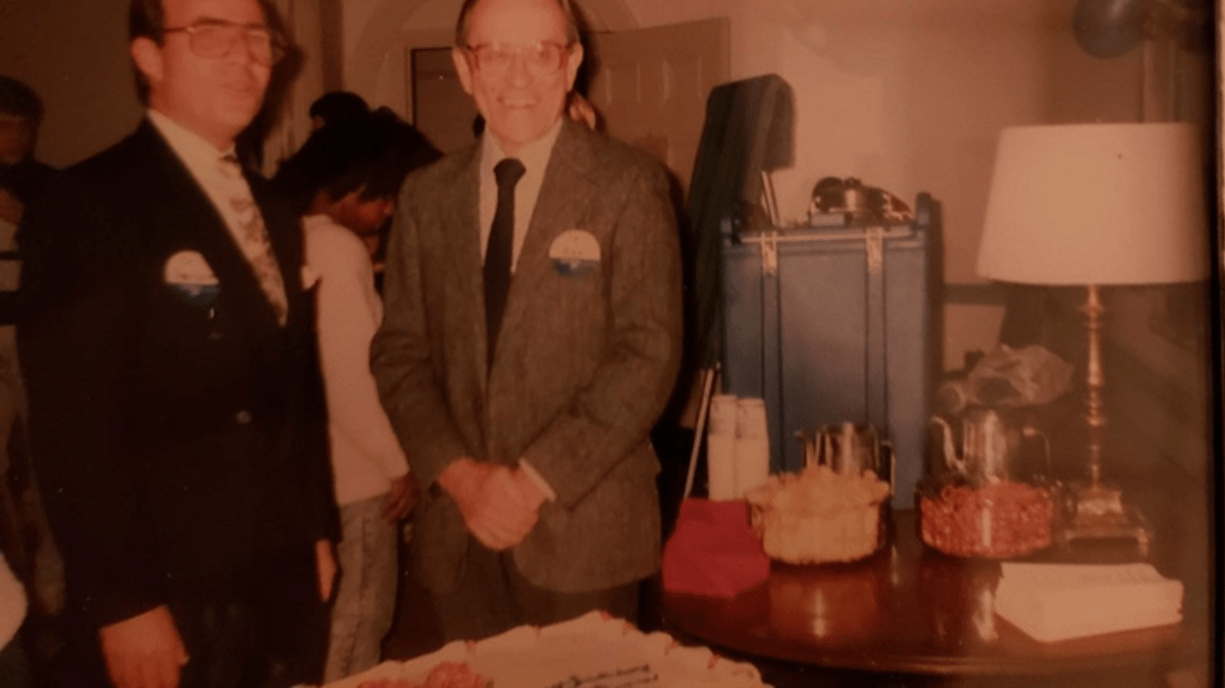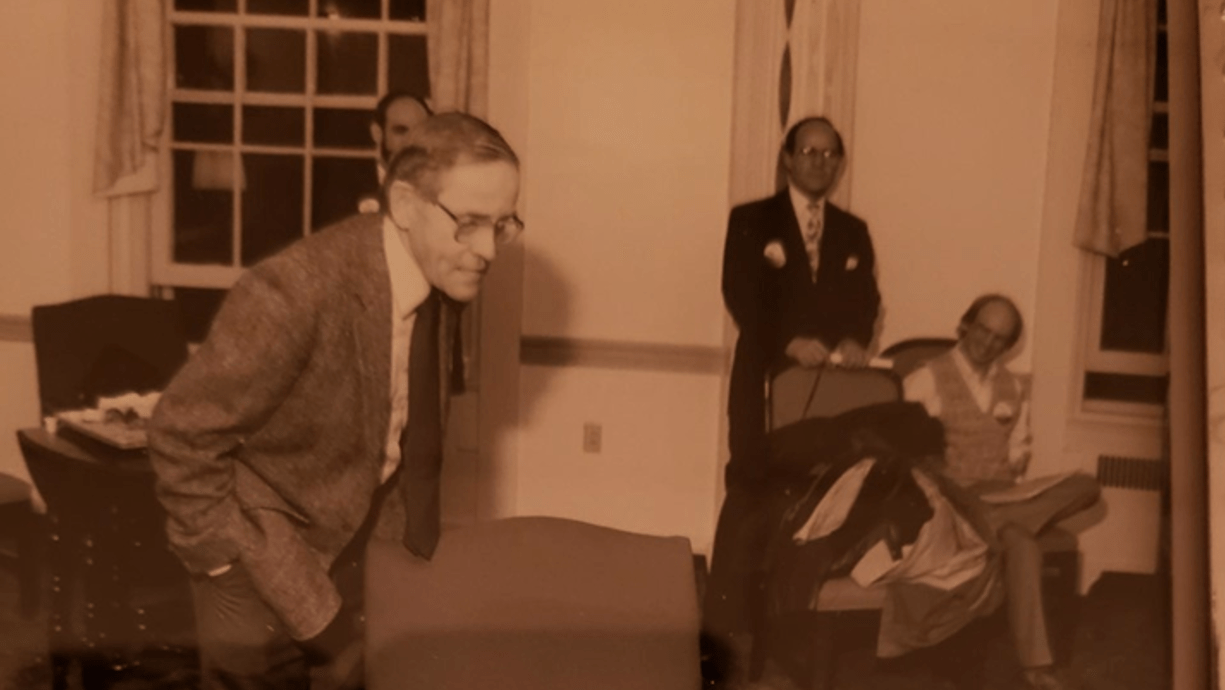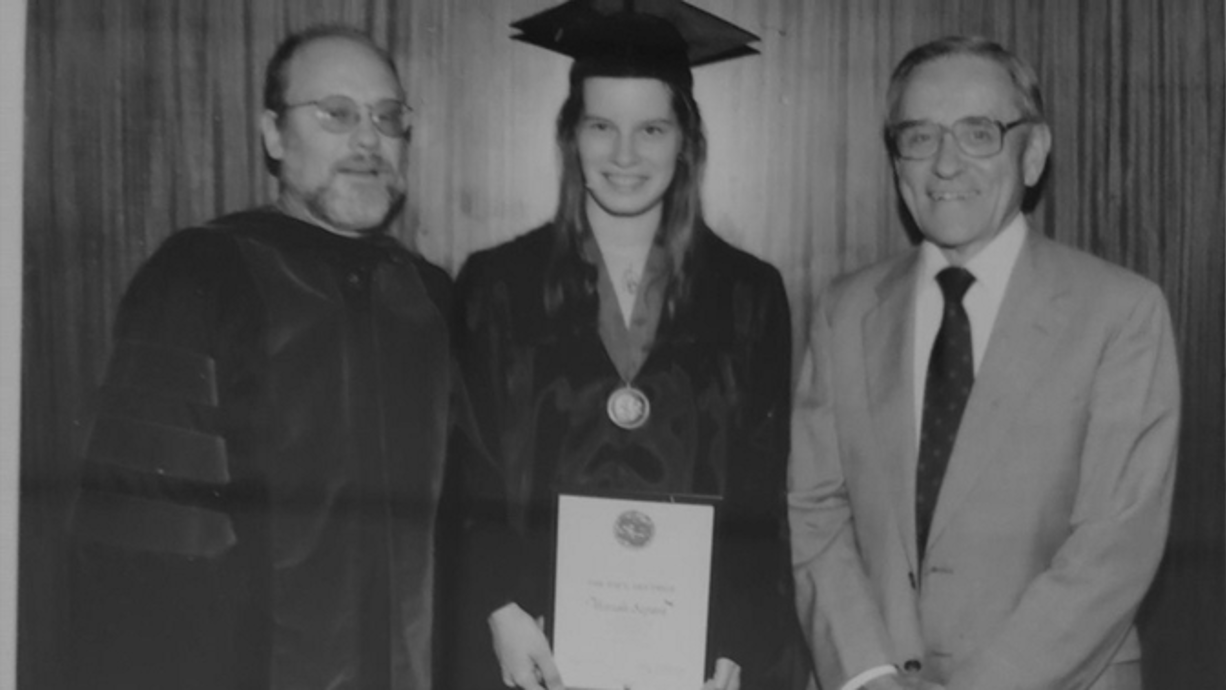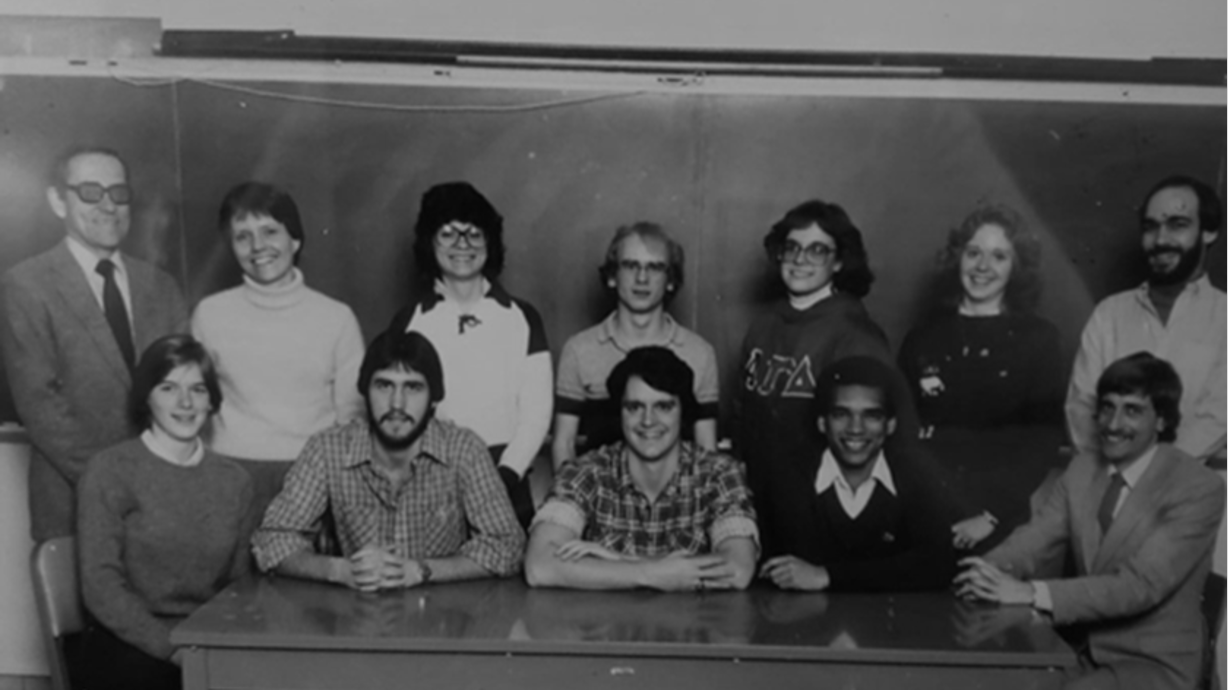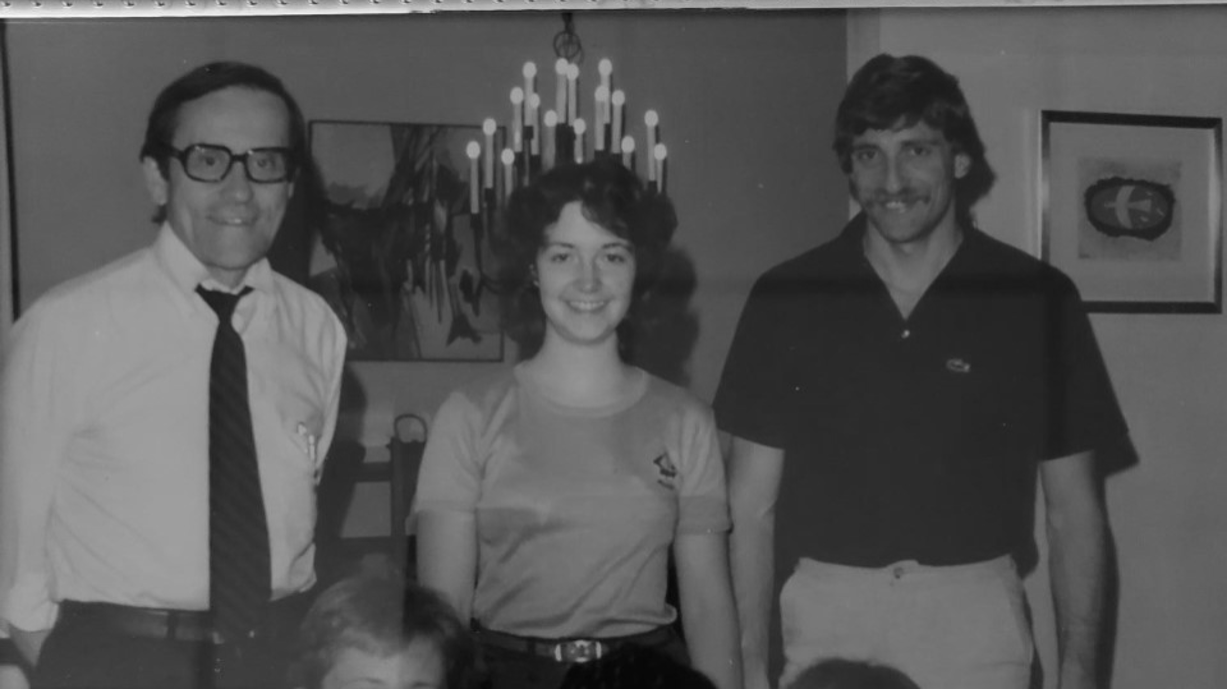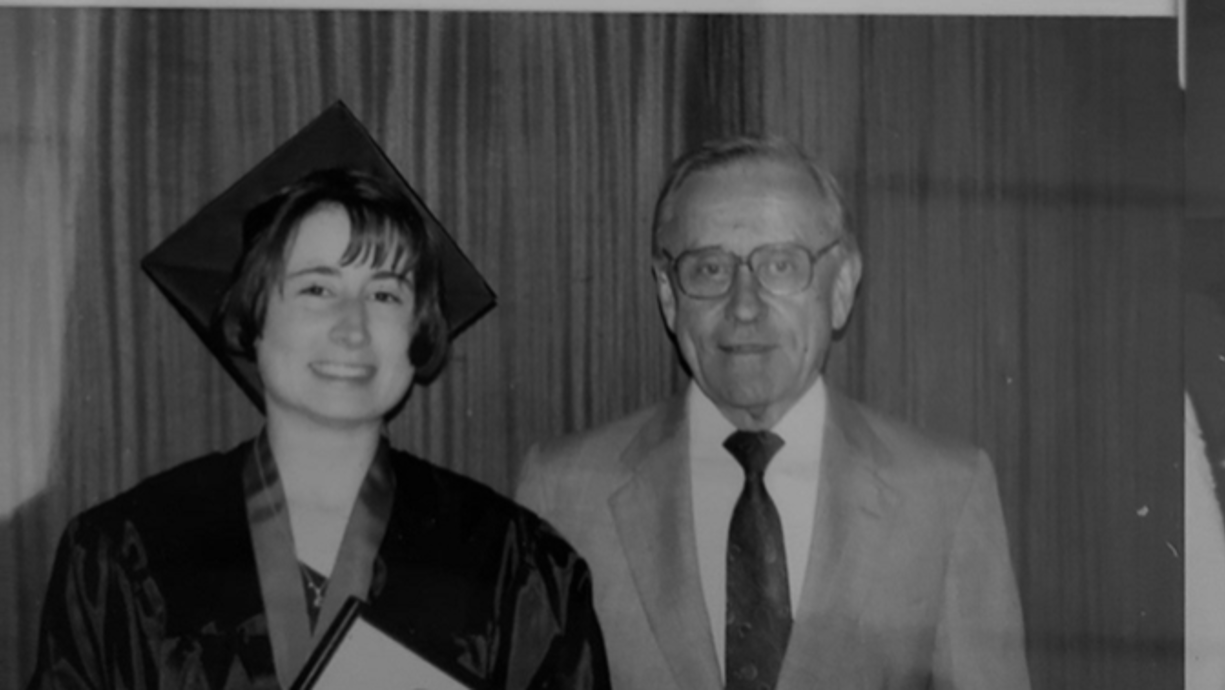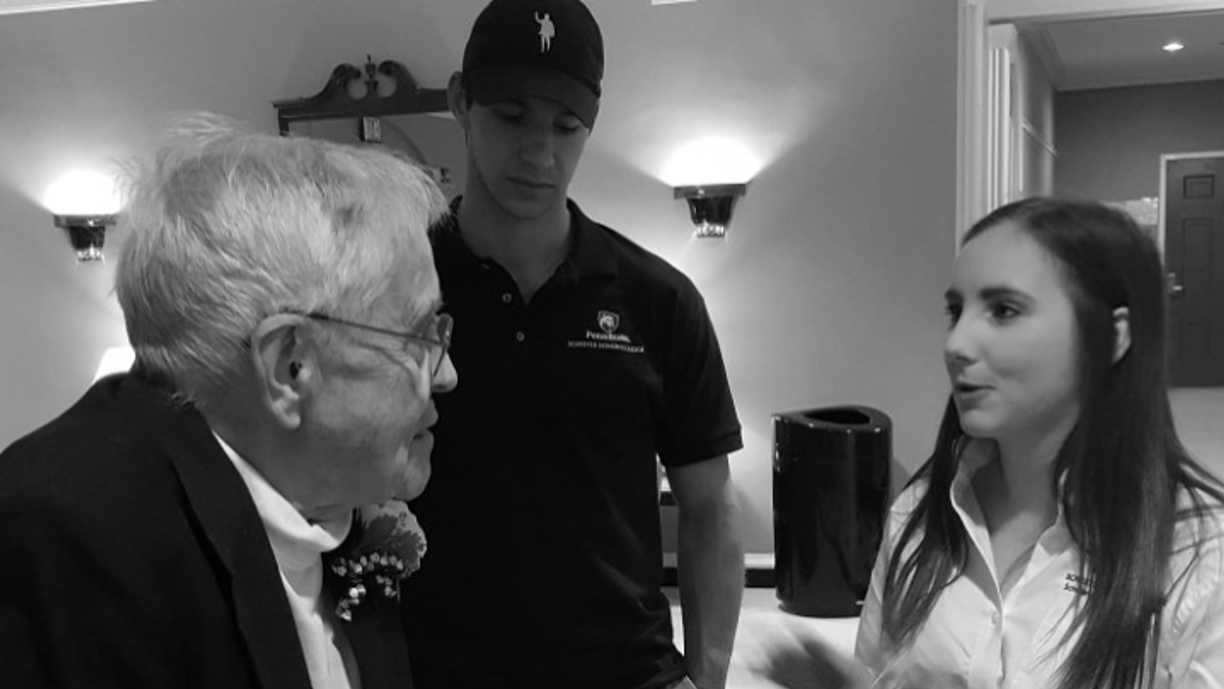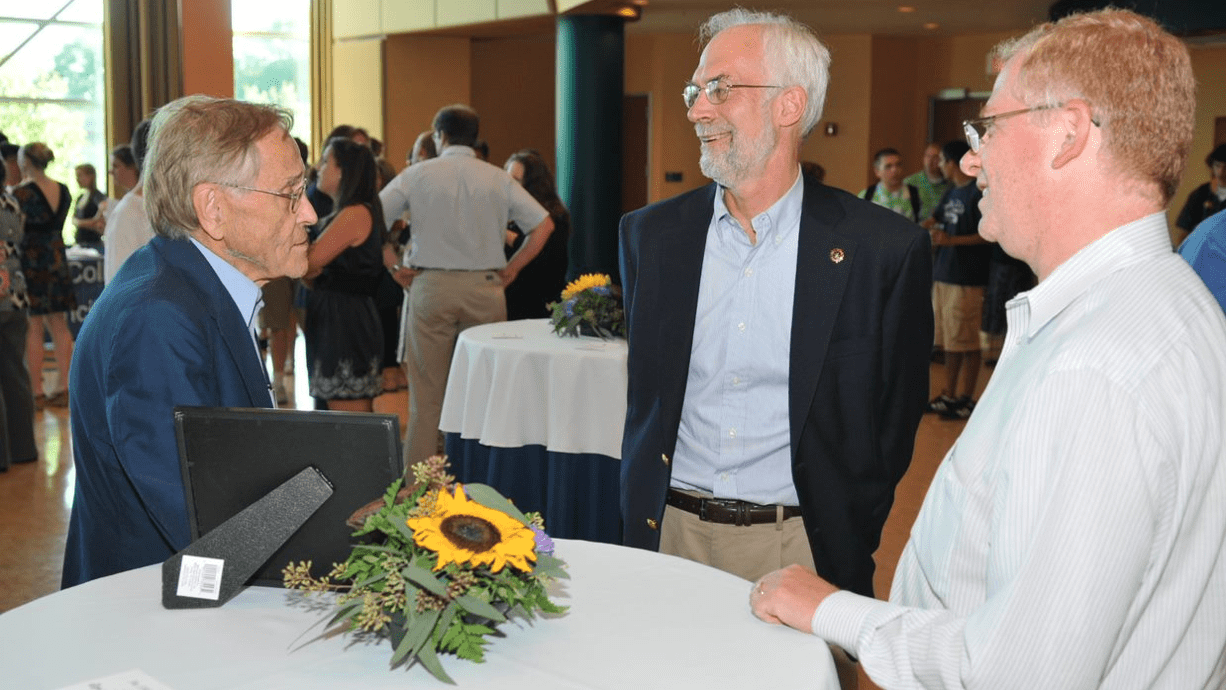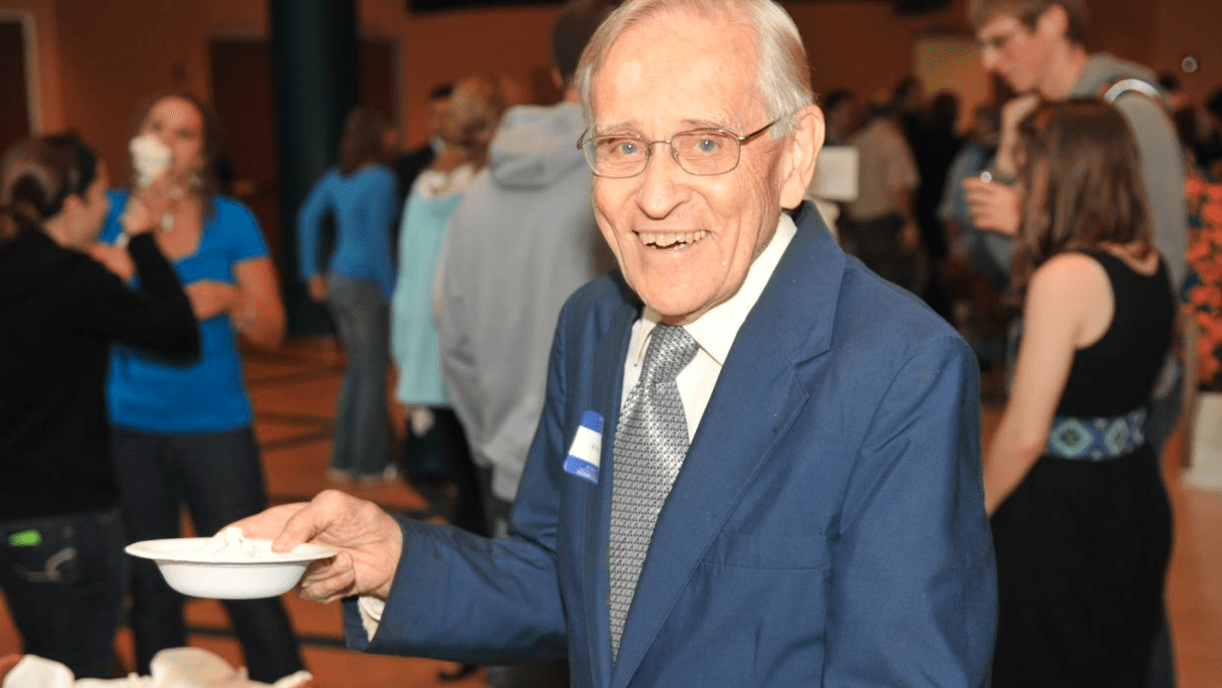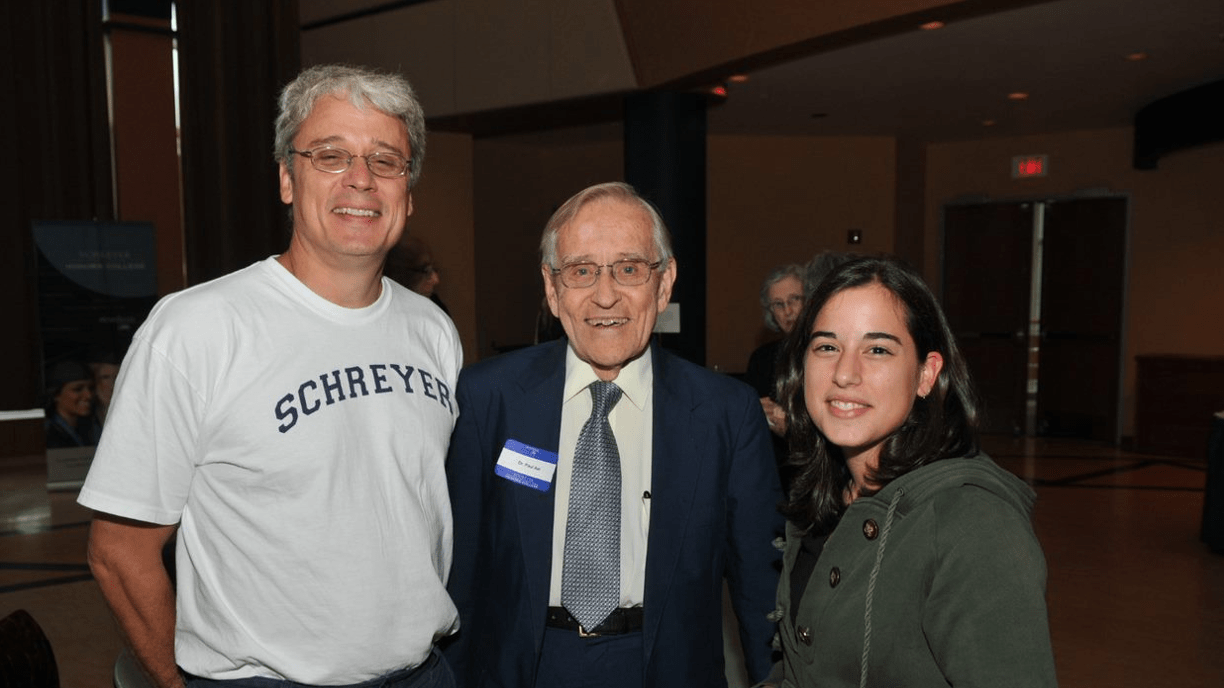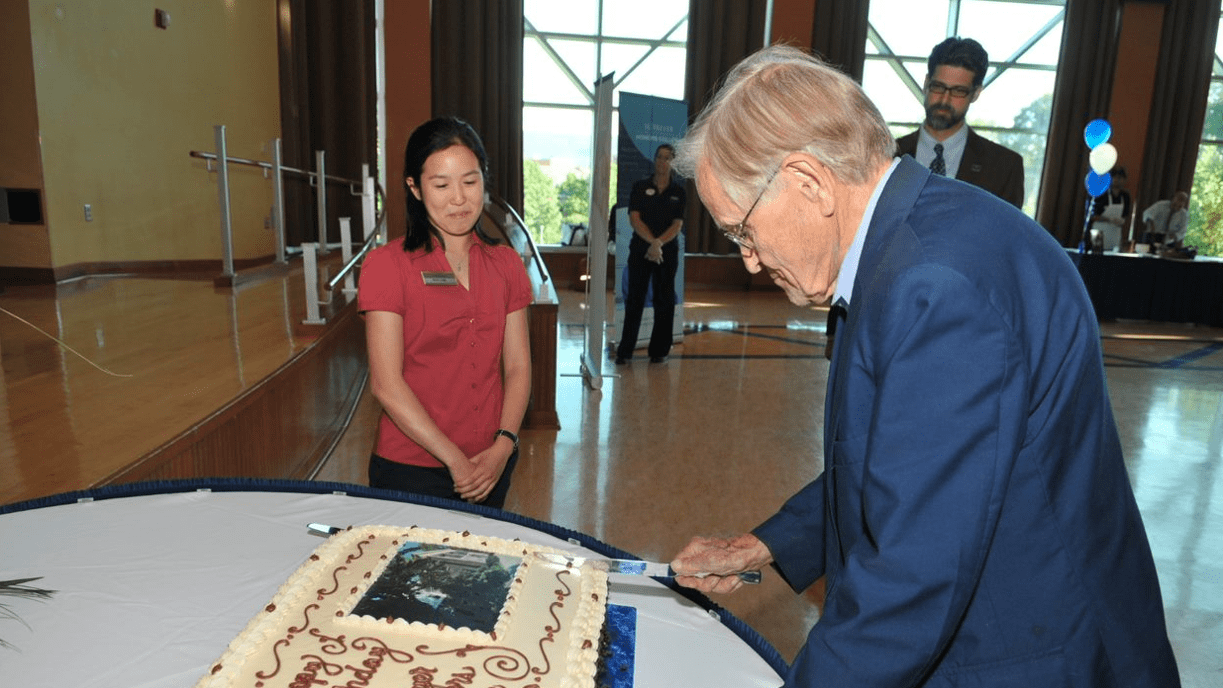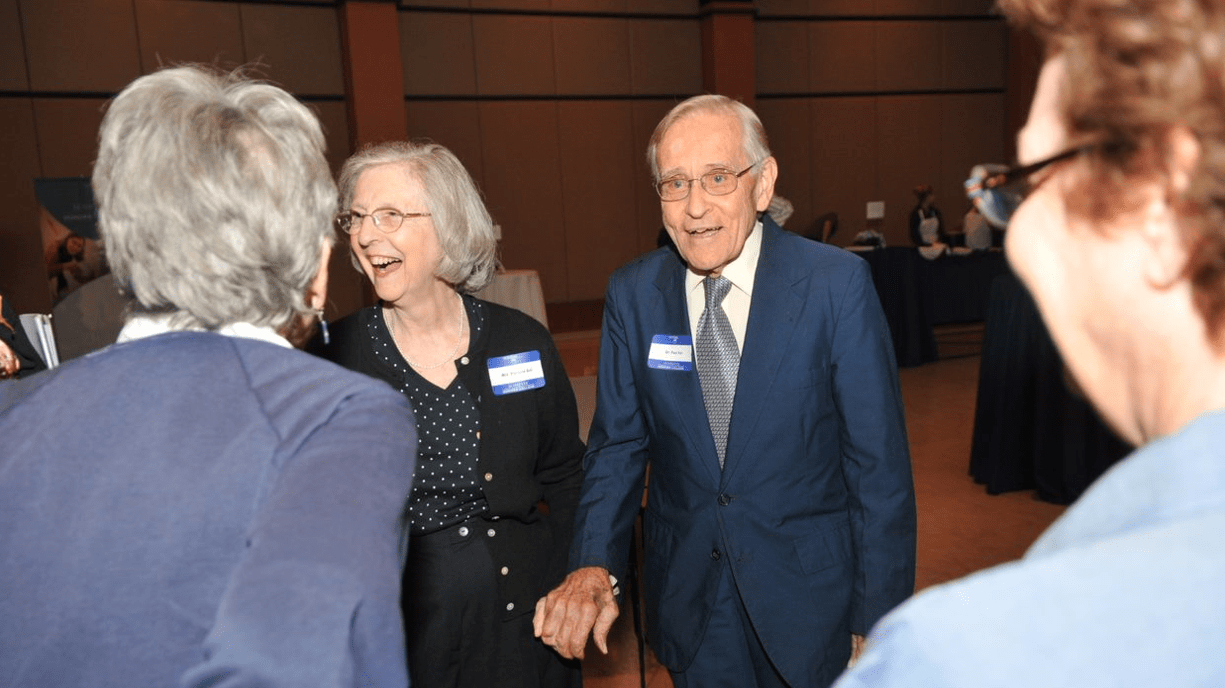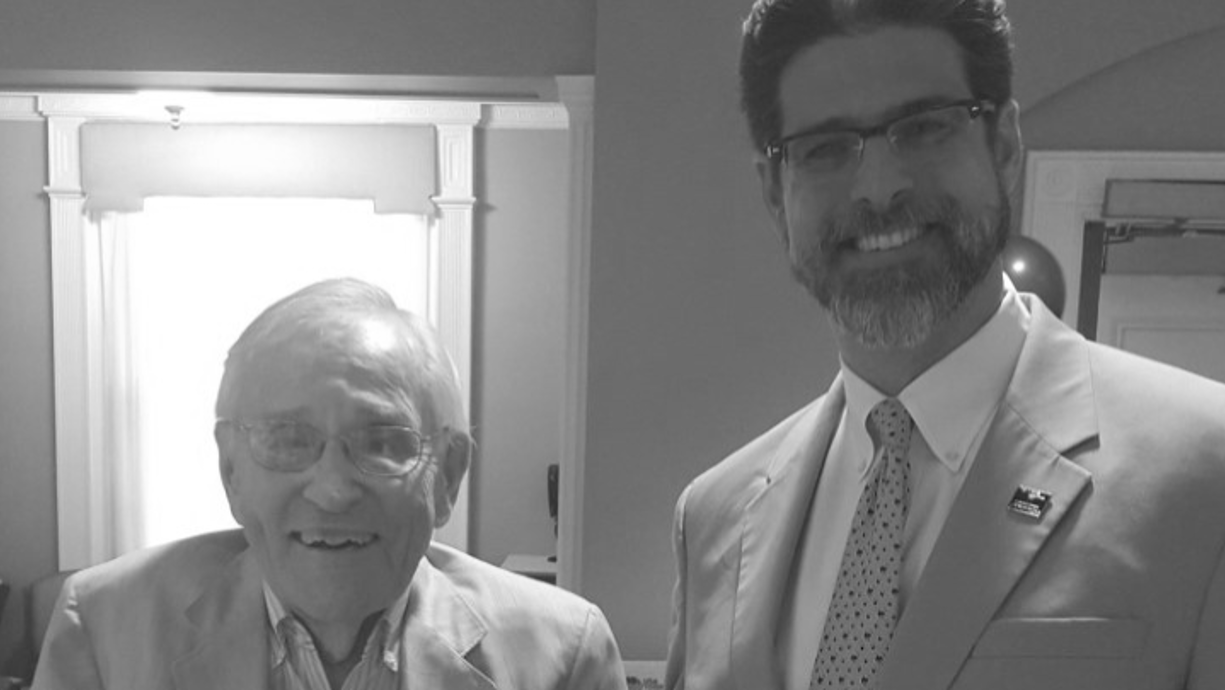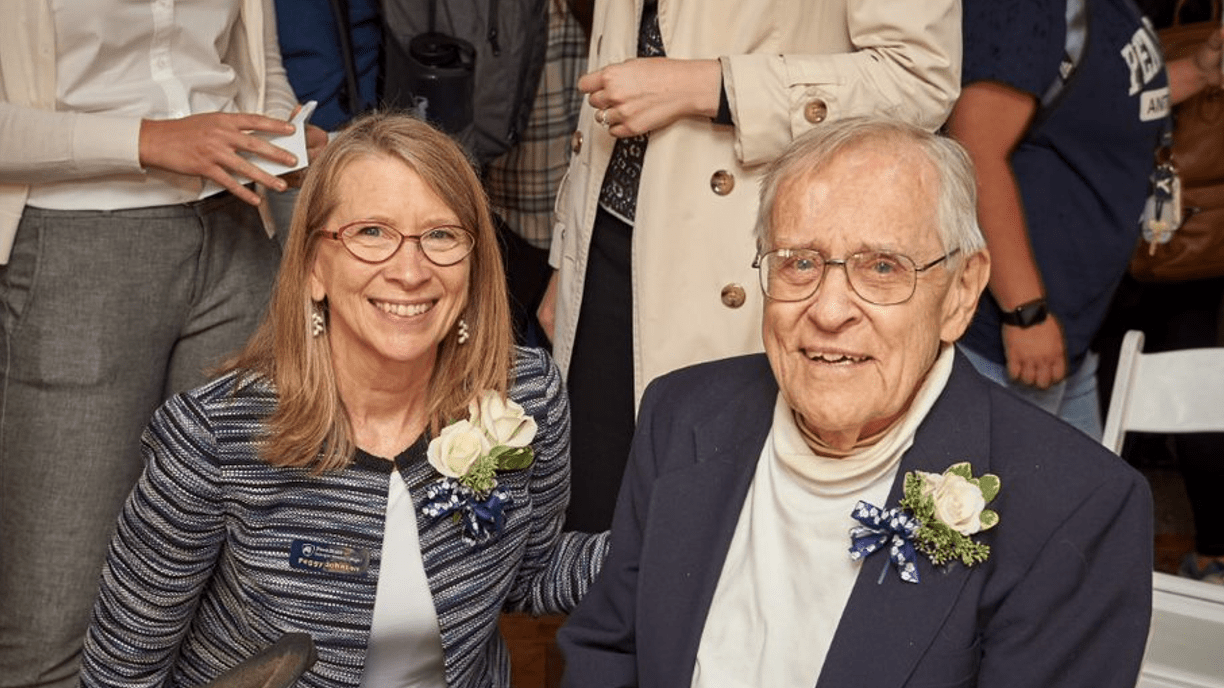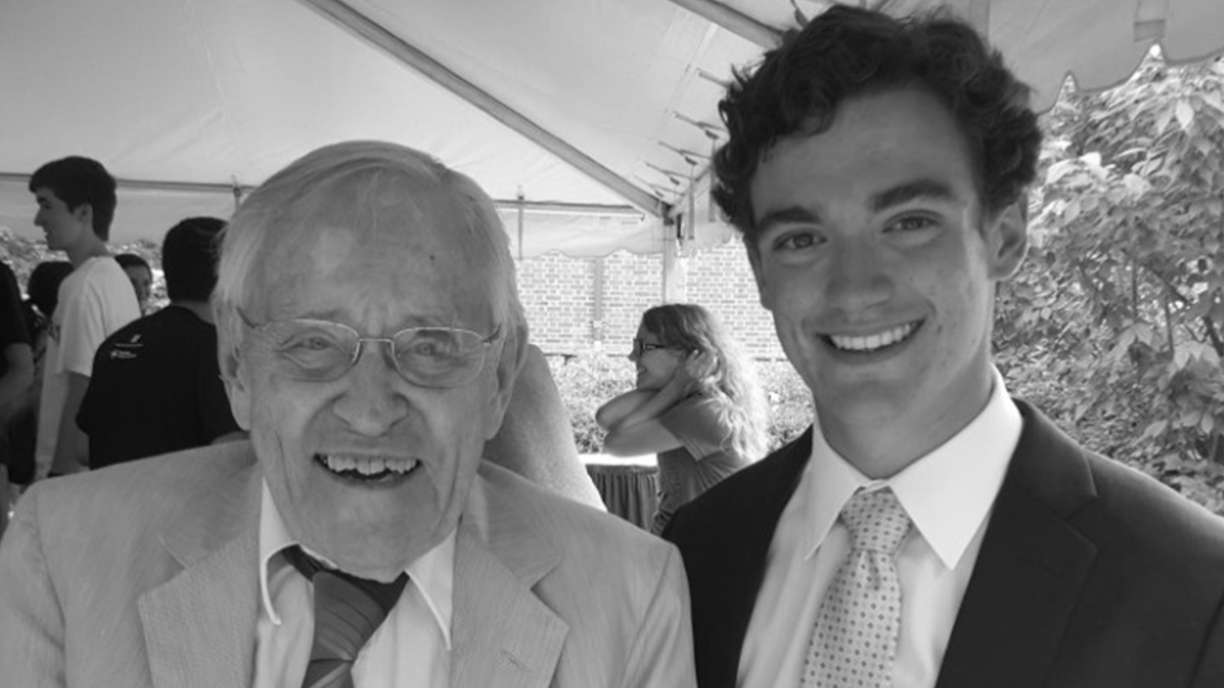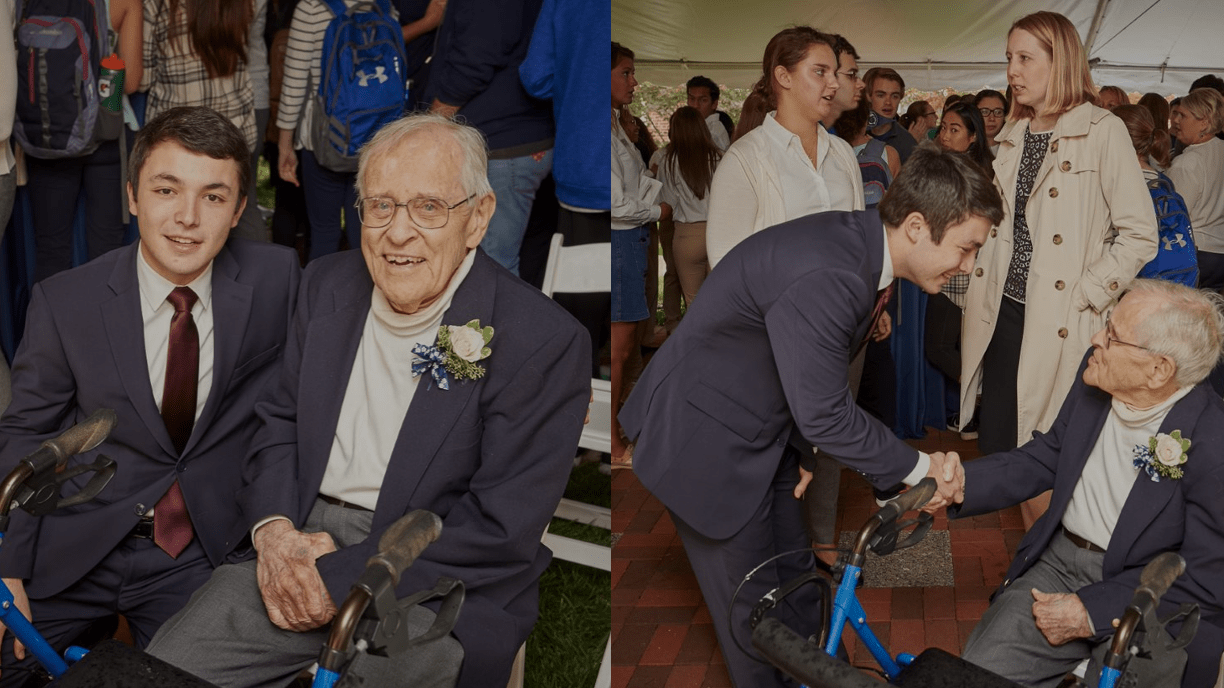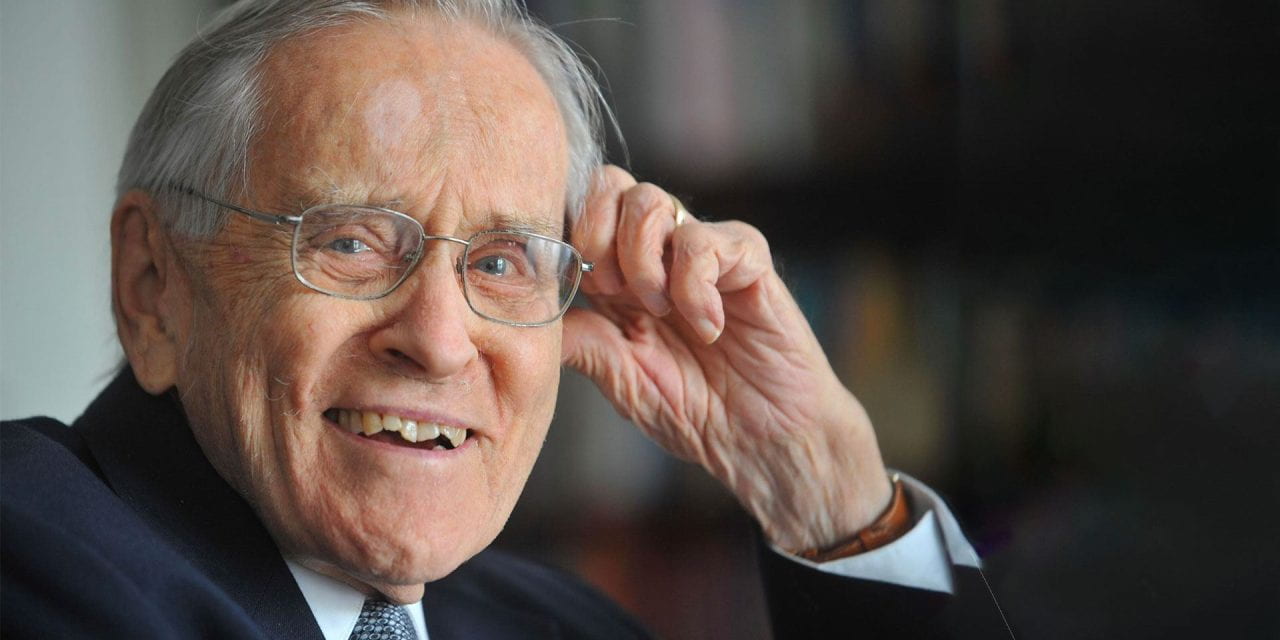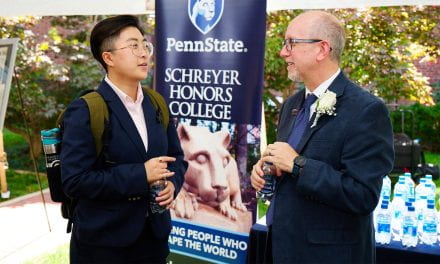For Paul Axt, students were always at the forefront of his work in higher education. He believed that a university could excel only if it had excellent students.
That conviction was an integral part of Axt’s founding of Penn State’s University Scholars Program in 1980. In what has been called the “pride and joy” of his professional career, Axt gave the University a tool for challenging its students with small, intensive honors courses, taking on undergraduate research and producing a thesis.
“I remember having some long discussions with him, including one afternoon over coffee at the Corner Room when I was home from college, about how students are a university’s ‘raison d’etre,’” said Axt’s daughter, Lisa Axt Alexander. “His view was that they should be offered an education designed to nurture motivation, curiosity and intellect.”
Though Axt passed away at 98 years old on March 8, 2023, his time as a mathematics professor – including chairing the math department – and as director of the University Scholars Program continue to impact Penn Staters today. There is one Scholar alumnus in particular who uses lessons learned from Axt to shape his leadership strategy.
“Picture yourself in 1987 or ‘88. I was an engineering science student who just joined the University Scholars Program and so, naturally, I started to get invited to some things I’d never heard of before,” said Patrick Mather, dean of Schreyer Honors College, about one of his first encounters with Axt.
“There was one event, and the title caught my eye because it had the word topology in it and it had to do with math. I thought to myself, ‘I’m doing pretty well in math, so I’ll check this thing out,’” Mather continued.
“Dr. Axt was there as the host, not the speaker. In my mind he was wearing a sports coat with patches on the elbows, looking like the wise professor that set up the environment for students to feel comfortable hearing from a renowned mathematical scholar. Honestly, I didn’t really understand what the heck the professor was talking about.
“They say, though, that you remember what you feel more than what was said. I remember feeling welcome and feeling inspired to learn more math. Dr. Axt created that,” Mather added. “I try to model that in the things we do in the Honors College today. I pay a lot of attention to how students will feel about things we do for and with them because it made such an impact on me 35 years ago. We’re in that business of making students feel inspired, feel welcome.”
Axt seemed to have a knack for inspiring those around him. When his proposal for the University Scholars Program came before Penn State’s faculty senate, it passed unanimously in one day. Its implementation and execution were so successful over 17 years that William and Joan Schreyer were moved to contribute a $30 million gift that evolved the program into the Schreyer Honors College. And in recognition of his distinguished service, the Paul Axt Prize has been awarded to a graduating Scholar annually since 1987 to honor their “passionate commitment to inquiry” and “intellectual curiosity.”
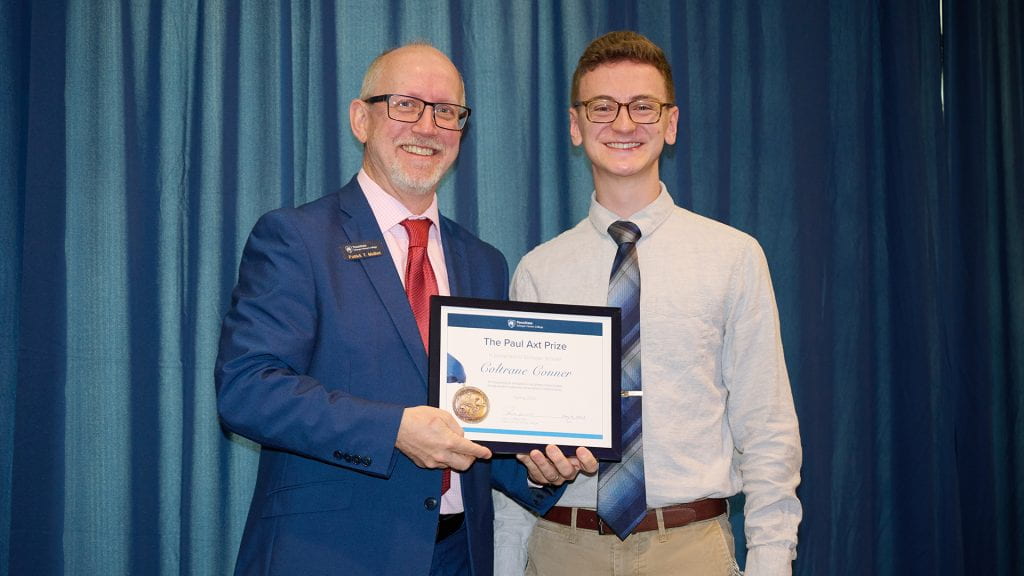
Contribute to the Paul Axt Prize, which recognizes and supports Scholars.
Over the years, tens of thousands of Scholar alumni from the University Scholars Program and the Honors College made their way out into the professional world. Thanks to Axt and those who followed him, those Scholar alumni were, and are, well-positioned to make significant contributions and affect positive change across a wide variety of industries. Axt, though, always spoke humbly of his role in making that possible.
“I don’t think he ever thought of [the University Scholar’s Program] as his personal legacy,” said Axt Alexander. “Rather, he was grateful that something he had spent a lot of time and energy researching and designing had accomplished something good for the University and its students.”
Born in Cambridge, Wisconsin on September 18, 1924, Axt came to Penn State in 1963. A Northwestern University graduate, Axt also studied theology and spent time as a pastor before taking up teaching.
Axt Alexander said of her father that many of the qualities that helped him succeed in his professional life also showed up at home.
“As a father, he was strict but attentive and caring. He showed up,” she said. “I have clear memories of him reading to me before bed every night as a very young child. He played chase with me and my sister, took us camping and skiing, and he sat with me until late at night at the kitchen table helping me with high school essays. He could be exacting and opinionated, but he loved kids and was very devoted to his family.”
Axt also took care to include his family as he indulged in one of his favorite hobbies, traveling. During a sabbatical year when the family lived in France, Axt Alexander recalled her father taking her on a walk on a snowy day to see the statue of the poet Paul Verlaine in Paris’s Luxembourg Gardens. The visit was special to Axt Alexander because, for a class, she had to memorize one of Verlaine’s poems that her father had also studied while he was in school.
Axt Alexander said that her parents were “real Francophiles” because of their affinity for the food, history, and culture there.
Axt and his wife didn’t limit themselves to exploring what France had to offer, though. Along with visiting all 50 states, they traveled to Turkey, Jordan, Egypt, China, Japan, New Zealand, Australia, Thailand, Myanmar, India, Russia, Brazil, Argentina, Chile, and Mexico.
Taken in full context, it’s clear that Axt’s life showcased what it means for a person to live out their values. And by looking closely, one can see that his true legacy will be how he cared for others and worked to do good by them. Whether it was his family, his students, or his colleagues, he treated them with care and strived to help them be their best selves.
